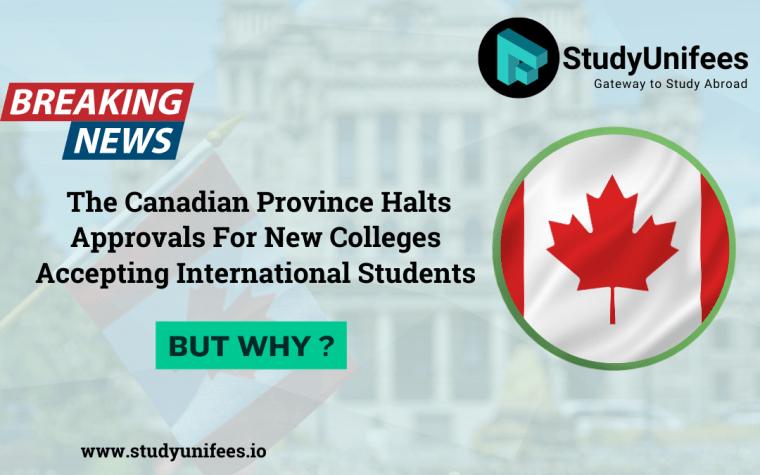Thinking about studying in the UK for your undergraduate degree? It’s a fantastic opportunity to receive a world-class education, immerse yourself in diverse cultures, and lay a strong foundation for your future career. This guide is here to give you all the essential information you need, from the most popular courses to the top universities in the UK.
Let’s discuss the top 10 things international students must know about undergraduate courses in the UK
1. Duration of Courses: Undergraduate courses when you study in the UK typically last three years, which is shorter than in many other countries. However, some programs, such as those with a year in industry or study abroad, may last four years. This shorter duration allows students to enter the workforce sooner.
2. Types of Degrees: UK universities offer various types of undergraduate degrees, including Bachelor of Arts (BA), Bachelor of Science (BSc), and Bachelor of Engineering (BEng). Each type focuses on different areas of study and caters to students’ specific academic interests and career goals.
3. Entry Requirements: Entry requirements for undergraduate courses when you study in the UK vary by university and program. Generally, students who want to study in the UK need to have completed their secondary education and obtained qualifications equivalent to A-levels or International Baccalaureate (IB). Proficiency in English, demonstrated by tests such as IELTS or TOEFL, is also required.
4. UCAS Application System: International students who want to study in the UK apply to UK universities through the UCAS (Universities and Colleges Admissions Service) system. This centralized application platform allows students to apply to multiple universities with a single application, simplifying the process and increasing the chances of acceptance.
5. Tuition Fees and Scholarships: Tuition fees for international students who want to study in the UK vary depending on the university and course. On average, fees range from £10,000 to £38,000 per year. Many UK universities offer scholarships and financial aid to international students, which can significantly reduce the cost of studying abroad.
6. Student Visa Requirements: To study in the UK, international students who want to study in the UK need a Tier 4 (General) student visa. The application process involves providing proof of acceptance from a UK university, financial support, and English language proficiency. Students should apply for their visa well in advance of their course start date.
7. Work Opportunities: International students in the UK are allowed to work part-time during term time (up to 20 hours per week) and full-time during holidays. This provides an opportunity to gain valuable work experience, earn money, and enhance their resume. Some universities also offer internship programs as part of their courses.
8. Living Expenses: The cost of living in the UK varies depending on the location. London and other major cities tend to be more expensive, with average monthly living costs ranging from £1,200 to £1,500. Smaller cities and towns may have lower living expenses. It’s essential for students to budget for accommodation, food, transport, and other personal expenses.
9. Health Insurance: International students who want to study in the UK are required to pay an immigration health surcharge (IHS) as part of their visa application. This grants access to the National Health Service (NHS), which provides healthcare services at no additional cost. It’s important to register with a local doctor upon arrival.
10. Cultural Adaptation: Studying in the UK offers a rich cultural experience. International students who want to study in the UK should be prepared to adapt to a new environment, including different academic styles, social norms, and weather. Universities often provide orientation programs and support services to help students settle in and thrive.
Also Read : Why an MBA in the UK is Popular Among Indian Students
10 Most Popular Undergraduate Courses Among International Students
1. Business and Management Studies: Business and Management Studies are among the most popular courses for international students. According to HESA, over 27,000 international students enrolled in these courses in 2019/20, attracted by the UK’s strong business reputation and global industry connections.
2. Engineering: Engineering courses are highly sought after, with over 22,000 international students enrolled. The UK’s renowned engineering schools offer specializations in fields such as civil, mechanical, and electrical engineering, providing excellent career prospects.
3. Computer Science: Computer Science attracts over 20,000 international students, reflecting the growing demand for tech professionals. The UK’s advanced curriculum and cutting-edge research in AI, cybersecurity, and software development make it a top choice.
4. Law: Law is a popular choice, with over 15,000 international students. The UK’s legal education is globally respected, offering pathways to practice law internationally, particularly in common law jurisdictions.
5. Medicine; Medicine courses attract over 10,000 international students. The UK’s rigorous medical programs and clinical training at leading hospitals prepare students for successful careers in healthcare.
6. Social Sciences: Social Sciences, including psychology, sociology, and political science, have over 18,000 international students. These courses offer insights into human behavior and society, preparing graduates for diverse careers.
7. Art and Design: Art and Design courses are popular, with over 8,000 international students. The UK’s vibrant creative industry and world-renowned institutions like the Royal College of Art offer excellent opportunities for aspiring artists and designers.
8. Biological Sciences: Biological Sciences attract over 12,000 international students. The UK’s strong focus on research and state-of-the-art facilities make it an ideal destination for students interested in biology, biotechnology, and environmental science.
9. Economics: Economics courses enroll over 9,000 international students. The UK’s comprehensive programs and proximity to major financial centers provide valuable insights and career opportunities in economics and finance.
10. Media and Communication: Media and Communication courses are chosen by over 7,000 international students. The UK’s dynamic media landscape and top institutions like Goldsmiths and Bournemouth University offer cutting-edge education in journalism, public relations, and digital media.
Book Your Free Study Abroad Consultation
Top 20 Universities in the UK for Undergraduate Courses
- University of Oxford: The University of Oxford offers a wide range of undergraduate courses across various disciplines, including humanities, sciences, and social sciences. Oxford’s tutorial system provides personalized education and unparalleled academic support, making it a top choice for students who want to study in the UK.
- University of Cambridge: The University of Cambridge provides a diverse selection of undergraduate courses, emphasizing research and academic excellence. Its collegiate system fosters a supportive learning environment, and students who want to study in the UK benefit from world-class faculty and resources.
- Imperial College London: Imperial College London specializes in science, engineering, medicine, and business. Its undergraduate programs are known for their rigorous curriculum and focus on innovation, preparing students for successful careers in their chosen fields.
- London School of Economics and Political Science (LSE): LSE offers a range of undergraduate courses in social sciences, including economics, politics, and sociology. The institution’s global reputation and central London location provide students with unique academic and professional opportunities.
- University College London (UCL): UCL offers a broad array of undergraduate courses across various disciplines, including arts, sciences, and engineering. Its interdisciplinary approach and emphasis on research make it a leading institution for higher education.
- University of Edinburgh: The University of Edinburgh provides a wide range of undergraduate programs in humanities, sciences, and social sciences. Its strong research focus and vibrant campus life attract students from around the world.
- University of Manchester The University of Manchester offers a diverse selection of undergraduate courses, with strong programs in engineering, sciences, humanities, and social sciences. Its emphasis on research and innovation provides students with a comprehensive education.
- King’s College London: King’s College London offers undergraduate courses in a variety of fields, including health sciences, humanities, and social sciences. Its central London location and strong industry connections enhance the student experience.
- University of Bristol: The University of Bristol provides a wide range of undergraduate courses, known for their academic rigor and research excellence. Its vibrant campus and supportive academic environment make it a top choice for international students.
- University of Warwick: The University of Warwick offers diverse undergraduate programs across humanities, sciences, and social sciences. Its strong focus on research and interdisciplinary studies prepares students for global careers.
- University of Glasgow: The University of Glasgow provides a broad selection of undergraduate courses, with strengths in engineering, sciences, and humanities. Its rich academic tradition and vibrant student life make it an attractive destination for international students.
- University of Birmingham: The University of Birmingham offers a wide range of undergraduate courses, known for their academic excellence and strong research focus. The university’s diverse campus and supportive environment enhance the student experience.
- University of Leeds: The University of Leeds provides a variety of undergraduate programs across disciplines, including arts, sciences, and engineering. Its emphasis on research and practical learning prepares students for successful careers.
- University of Sheffield: The University of Sheffield offers a diverse selection of undergraduate courses, with strengths in engineering, sciences, and social sciences. Its commitment to research and innovation provides students with a comprehensive education.
- University of Nottingham: The University of Nottingham provides a wide range of undergraduate courses, known for their academic rigor and strong research focus. Its global campuses and diverse student body offer a unique learning experience.
- University of Southampton: The University of Southampton offers a variety of undergraduate programs, with strengths in engineering, sciences, and humanities. Its emphasis on research and innovation prepares students for successful careers.
- Durham University: Durham University provides a diverse selection of undergraduate courses, known for their academic excellence and supportive learning environment. Its collegiate system fosters a close-knit community and personalized education.
- University of St Andrews: The University of St Andrews offers a wide range of undergraduate courses, with strengths in humanities, sciences, and social sciences. Its rich academic tradition and picturesque campus attract students from around the world.
- University of Exeter: The University of Exeter provides a variety of undergraduate programs, known for their academic rigor and strong research focus. Its vibrant campus and supportive environment enhance the student experience.
- University of York: The University of York offers a diverse selection of undergraduate courses, with strengths in humanities, sciences, and social sciences. Its commitment to research and innovation provides students with a comprehensive education.
Conclusion
So if you are thinking about studying in the UK for your undergraduate degree? It’s will best idea. In the UK, you’ll not only receive a world-class education but also get to experience a rich culture and open doors to fantastic career prospects. By diving into the key aspects of undergraduate study in the UK, exploring the most popular courses, and learning about the top universities, you can make well-informed decisions that align perfectly with your academic and career goals. Sure, the journey might have its challenges, but the rewards make it all worthwhile, setting you up for a successful and fulfilling future.
If you need guidance on studying in the UK, contact Study Unifees, the best study abroad consultancy. They’ll help you every step of the way!










